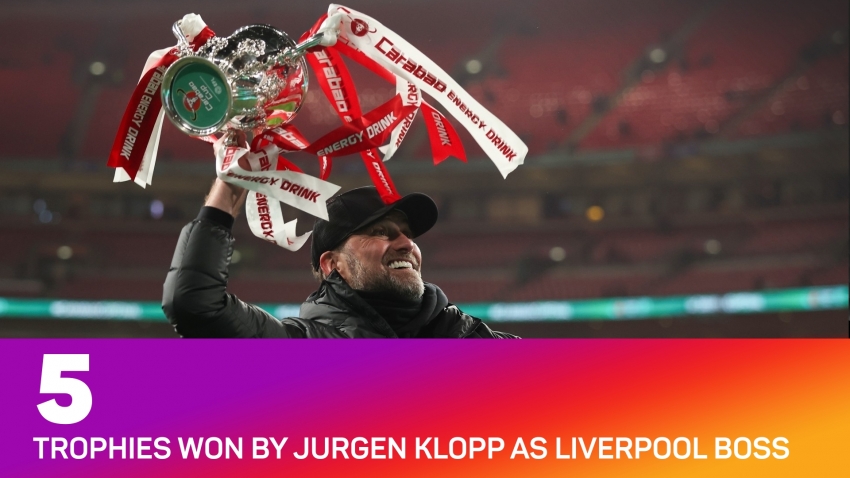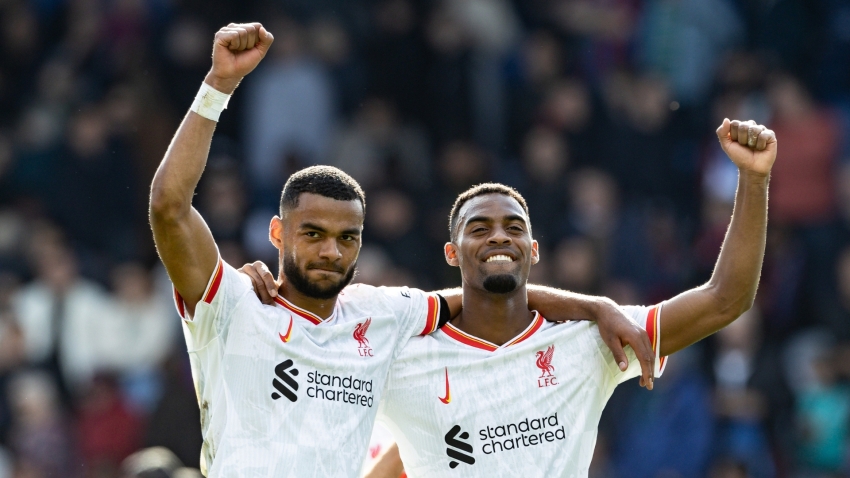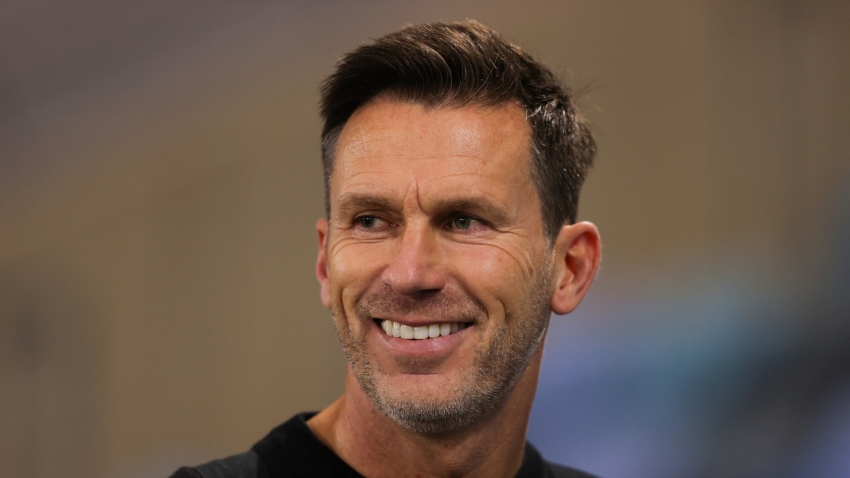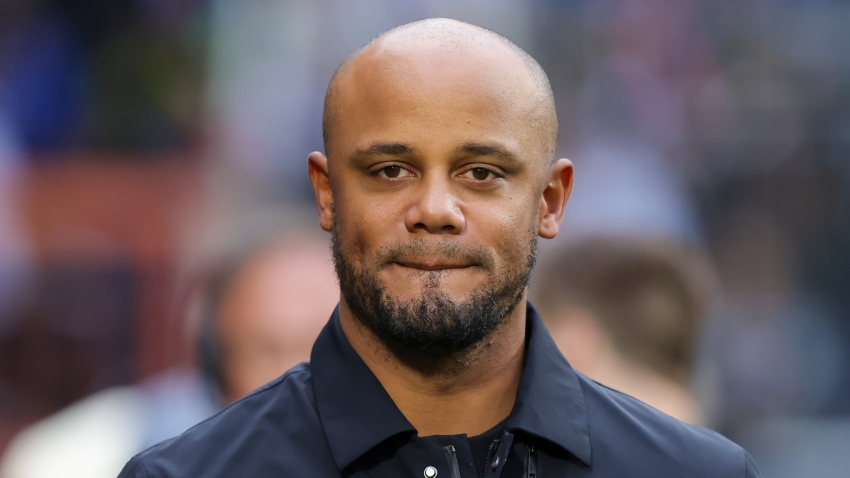A lot of talk in recent weeks has centred around the burgeoning "rivalry" between Manchester City and Liverpool, with English football's two current leading lights doing battle on multiple fronts.
Liverpool got the better of City in the weekend's FA Cup semi-final, but they remain in a tussle for the Premier League title and could yet meet in a Champions League showdown – there's much to play for.
But while that rivalry has been borne out of competitiveness, the Liverpool matches that most – fans and neutrals alike – will continue to look out for are those with Manchester United.
Despite their historic successes and status as English football's most-successful teams, rarely in the modern era have they been competitive rivals like Liverpool are with City now – in fact, only once in the Premier League have the Reds and United finished as the top two. Invariably, if things are going well for one, the opposite is true for the other.
Ahead of Tuesday's clash at Anfield, the gulf is 19 points in the Premier League. Since Alex Ferguson's retirement, only once has there been a larger gap between the two ahead of their second meeting of the season.
After their 5-0 rout at Old Trafford in October, Liverpool are looking to complete the league double over United for the first time since 2013-14, while the Red Devils are winless in their last five league games at Anfield, netting just one goal in these matches. They last had a longer run without an away league win against their north west rivals between September 1970 and December 1979.
What makes the situation even worse for Ralf Rangnick's side is that it's difficult to escape from the idea that Liverpool are the club – in terms of how they're run and the success they're enjoying – that most United fans wish they were.
The template
Change is coming at Old Trafford. Whether it is for the better remains to be seen, but it would appear Erik ten Hag is set to be confirmed as United's next permanent manager in the coming weeks.
As highly rated as the Dutchman is, there is not masses of evidence to suggest anything will be better with him in charge. After all, under each of the four managers appointed in full-term roles since Ferguson, there are arguments to be made that they were not the biggest issue – rather, the club's hierarchy and decision-makers were.
Regardless of whether you agree with the decision or rate him as a coach, Rangnick's arrival as interim manager in November at least suggested United were attempting a cultural reset. Here was a "football man" with a track record of establishing certain processes and tactical setups at clubs coming in to potentially lay the groundwork for a rebuild.
But a lot of Rangnick's public advice to United has looked eerily like him pointing blatantly at Liverpool and saying: "Them, look at them. That's how you run a football club."
Klopp's arrival in 2015 was undoubtedly momentous. Liverpool had already shown promising signs in terms of their forward-thinking approach when initially hiring his predecessor Brendan Rodgers, as all the names reported to be on their shortlist when the current Leicester City boss got the job were coaches who had similar tactical outlooks, were young and spoke of the importance of "philosophies" or "projects".
A two-time Bundesliga-winning Klopp was, of course, a coach of an altogether different calibre. Their choice at the time was apparently between him and Carlo Ancelotti, but the fact they went for the German was by no means surprising. For one, the brand of football he was going to implement was hardly going to be a polar opposite of that employed by Rodgers, while he always appeared a far greater fit culturally than the Italian.
Klopp's arrival was seen as a coup. Let's not forget, in October 2015 Liverpool weren't exactly considered among the "elite". Historically, sure, but not competitively at that moment.
They went on to finish eighth in the Premier League, averaging 1.6 points per game – over Klopp's entire Premier League career, he's collected 2.1 per game, highlighting just how much of an improvement he's presided over.
While difficult to pinpoint one key factor, Rangnick was unequivocal in his surmising of his compatriot's situation on Monday, saying: "The same happened at other clubs. When he came to Borussia Dortmund or when he started his coaching career at Mainz, he developed all of those clubs, he raised the whole team and club to a different kind of level. This is what modern management is all about. He's one of the best, if not the best coach, not only now but in the past couple of years.
"If this should be a role model, I don't know. It's definitely no coincidence what's happened there in the last six years. In his first year, when he came during the season after eight or nine games and they finished eighth, and thereafter they just made the necessary adaptations. They brought in the right players, they got rid of the right players, they just built, they really built a squad and that's why they are where they are."
Patience is a virtue
Klopp's success at Liverpool isn't something that United can copy and paste. Even if the Reds' club setup is married to the coach's managerial style, the man in charge still needs to be very, very good at his job.
Ten Hag has done well at Ajax. He's taken them to a Champions League semi-final, played attractive football and looks likely to win a second Eredivisie title – but they have a club-wide 'philosophy' that the head coach must work within, rather than establish himself. United do not, as highlighted by the hotch-potch of tactical styles embraced with David Moyes, Louis van Gaal, Jose Mourinho, Ole Gunnar Solskjaer, and even Rangnick.
As such, the current squad has been assembled by Ferguson and his four successors, which hardly screams cohesion. Granted, one coach building a squad in its entirety is rare given how quickly clubs are to chop and change these days, but of Liverpool's first-choice XI, only Jordan Henderson was not brought to the club – or nurtured through the academy – during Klopp's reign.
United's appointment of John Murtough as football director and Darren Fletcher as technical director at least hinted at the club being brought out of the dark ages in terms of its structure, while many in the fanbase will have seen Ed Woodward's departure at the end of 2021 as a positive step.
The jury is still out on this new-look setup, though there is seemingly now something more closely resembling Liverpool's so-called "transfer committee". Indeed, that term is a bit of a blast from the past – it was once something you would regularly hear mentioned and sneered at during Rodgers' reign and early on in Klopp's spell, but Liverpool's undoubted success in terms of recruitment over the past six years speaks for itself.
Ten Hag will represent a gamble for United, but – assuming he does take the job – he will also be arguably the first up-and-coming manager to be appointed by the club since Ferguson. The Dutchman's is only two years Klopp's junior but is definitely on the rise reputationally.
No one knows if he'll be a success and, to be fair, he will need to justify patience to a degree. But time, trust and joint-up thinking have clearly been vital to Liverpool with Klopp – if United do truly value Rangnick's input, they would do well to heed his advice here.

































